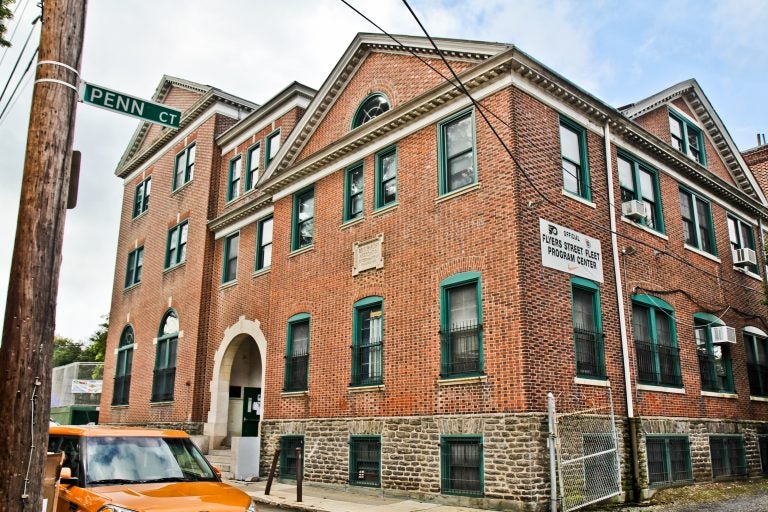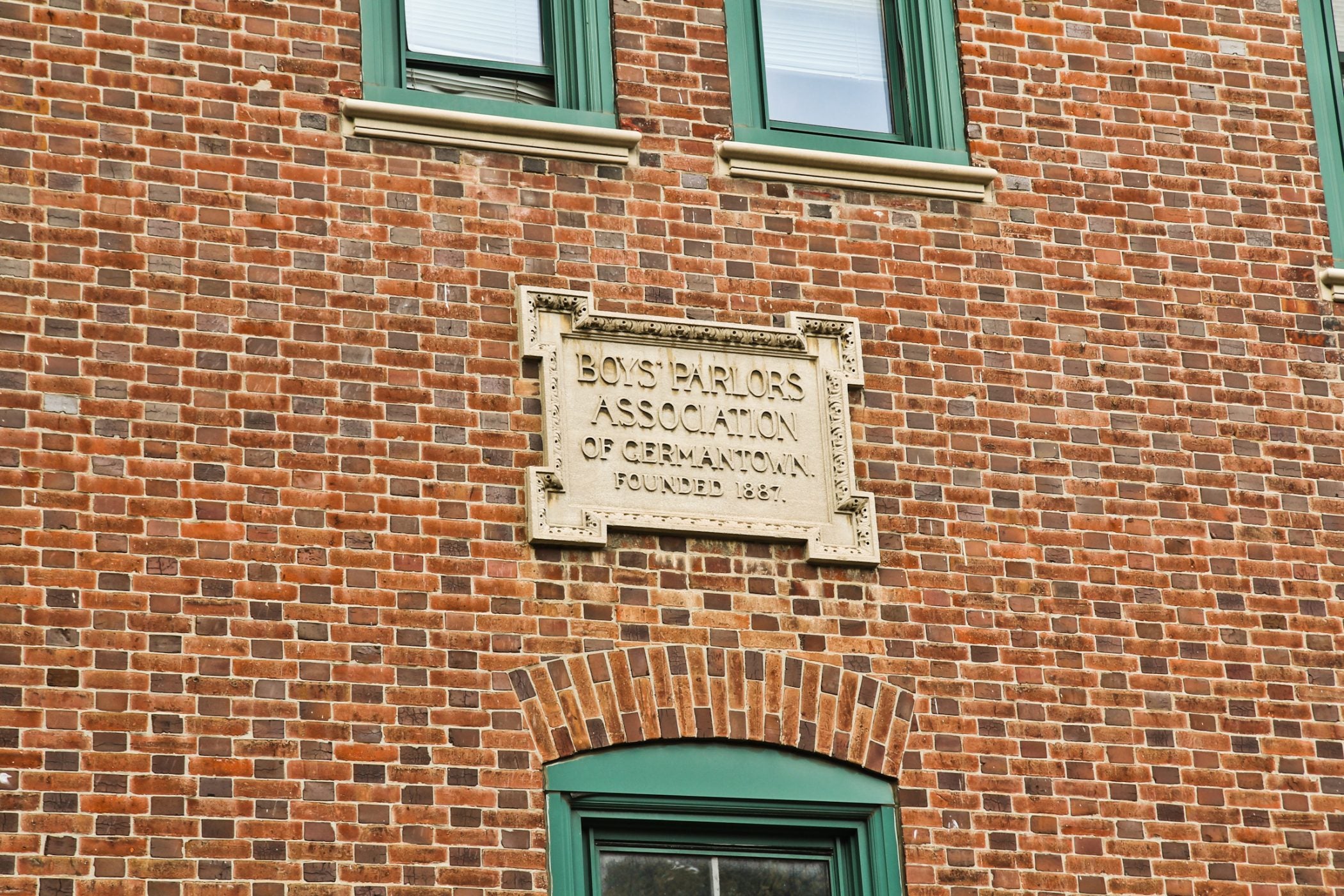Historic Germantown Boys and Girls Club spared wrecking ball
High atop the municipal building at 1515 Arch Street on Tuesday morning, the long battle over the future of the Germantown Boys and Girls Club appeared to end in détente.

Germantown Boys & Girls Club (Kimberly Paynter/WHYY)
This story originally appeared on PlanPhilly.
—
High atop the municipal building at 1515 Arch Street on Tuesday morning, the long battle over the future of the Germantown Boys and Girls Club appeared to end in détente.
For three years, the non-profit club tried to demolish the 120-year-old building that currently hosts their activities. With a huge infusion of funding from the Comcast Corporation, they then planned to replace it with a vast $20 million state-of-the-art complex.
Preservationists activists and some neighborhood groups pushed back, asking them to reuse the historic building and scale back the scope of the project or move it to the east side of Germantown Avenue.
The two sides grew embittered, as the Boys and Girls Club’s white leadership and their allies in the Northwest’s black political class accused preservation advocates of racism after they tried to save the building by adding it to the city’s local register of historic places.
Now after 16 months of enmity and strife, there is a compromise.
“This is in the best interests of the community,” said John Mattioni, a longtime commission member who chaired the special Tuesday meeting. “Some of the hard feelings hopefully will disappear and you will learn to live with each other and work together to make this a success.”
The 14-page contract requires the Boys and Girls Club to renovate and reuse the historic building while still constructing a neighboring modern counterpart. The contract requires the organization to pull the demolition permit filed for the 25 W. Penn Street building in exchange for a recall of the nomination to add the structure to the local register of historic places.
The contract also stipulates that Penn Knox Neighborhood Association, which submitted the nomination with support from local preservationists, will be consulted about renovations to the Georgian Revival clubhouse and participate in the redevelopment process moving forward, at least in regards to the historic structure.

The project will also be scaled down and a hockey rink originally planned for the property will no longer move forward. The Boys and Girls Club will now draft a fresh plan, including new cost estimates.
“Ed Snider [the deceased owner of the Flyers] was coming in and putting in an ice hockey rink, but that’s completely off the table due to the concerns of the community,” said Clare McGrory, of a member of the Boys and Girls Club’s Board of Directors. “It [also] changed in scale and scope because of our concessions to not modify the exterior [of the historic building]. We’ll be reassessing the scope of the project now and how Comcast can and will support it.”
The meeting on the 18th floor of 1515 Arch Street proved to be exceedingly short, lasting only 10 minutes, in contrast to previous Historical Commission hearings on the subject, which have dragged on for four hours.
This time accusations of bad faith and racial prejudice did not fly and the two sides put a smiling face on the compromise.
“I’m so relieved,” said Sue Patterson, head of the Penn Knox Neighborhood Association. “It’s been rough and there have been questionable strategies to get what you want that have done significant damage. We’re going to have do a lot of healing. But everyone is ready to do that because we are all ready to get past this.”
The process began back in 2015, when the Boys and Gils Club received commitments from Comcast to build a massive new recreation center and hockey rink at 23 Penn Street. From the beginning the Boys and Girls Club enjoyed supportfrom much of Germantown’s political class, including district Councilmember Cindy Bass.
After the historic nomination effort ramped up, allies and consultants of the Boys and Girls Club flatly accused the community group of racism for their opposition to the project. That cry soon got taken up by Councilmember Bass and other prominent institutional supporters like the Enon Tabernacle Baptist Church.
Meanwhile, state Rep. Rosita Youngblood, who has represented the area for a quarter of a century, backed up the neighborhood group. She met with Governor Tom Wolf to ensure that the Boys and Girls Club didn’t receive state grants through the Redevelopment Assistance Capital Program (RACP).
Despite Tuesday’s compromise to break that logjam, acclaim for the process was by no means universal. Several Germantown residents questioned why the Historical Commission had essentially punted its responsibilities to a volunteer neighborhood group, which would now be tasked with maintaining the agreement and reviewing the Boys and Girls Club’s plans.
“They are experts, they are paid, they should enforce it, and they would have if the building had been successfully nominated,” said Allison Weiss, a neighborhood activist and head of the Germantown Civic Association. “The Historic Commission should do what they are supposed to do for the city. Neighborhood groups do not have the capacity to negotiate legally contracts and maintain them.”
The Penn Knox Neighborhood Association went into debt to hire a lawyer fight the case out. The volunteer organization will have to hold fundraisers in the coming months ands years to restore financial stability.
The Historical Commission’s failure to vote on the historic significance of the Boys and Girls Club’s building comes in the context of several other controversial rulings on structures like the Painted Bride in Old City and the Christian Street Baptist Church in Bella Vista, which have led preservationists to question the body’s objectivity.
WHYY is your source for fact-based, in-depth journalism and information. As a nonprofit organization, we rely on financial support from readers like you. Please give today.







